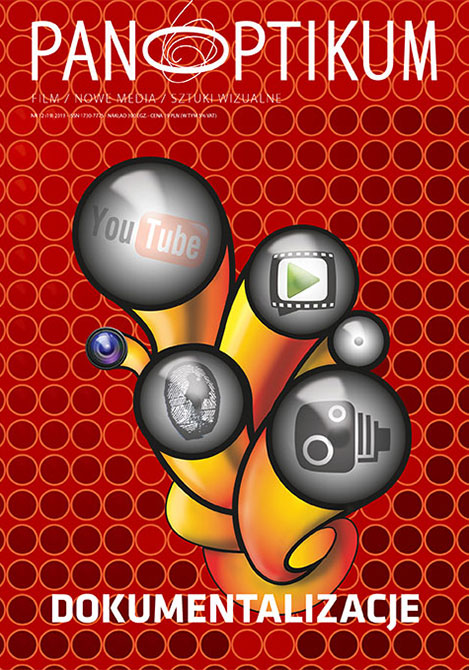Contemporary faces of personal documentary (Jonathan Caouette’s Tarnation, Kim Ki-duk’s Arirang and Jafar Panahi’s This is Not a Film)
Abstract
The article is a basic analysis of the poetics and style of autobiographical 21st century documentaries. The author concentrates mostly on three films: Jonathan Caouette’s Tarnation (2003), Kim Ki-duk’s Arirang (2011) and Jafar Panahi’s This is Not a Film (2011) and views them as representatives of contemporary autobiographical documentaries. He refers to directors first to realize such films – Ed Pincus (Diaries, 1971-1976) and Jonas Mekas (majority of his films). Moreover, he considers Marcin Koszalka’s Takiego pięknego syna urodziłam (1999) as one of the symptoms of oncoming popularity in using such poetics. The author claims that the expansion of autobiographical documentary has been taking place since the turn of the century – even today, film directors decide to use professional cameras to record presumably important events of their life and edit this material into a coherent film. This change of filmmakers’ interests was surely enabled by the progress of new media and access to modern technologies. Nowadays there are many autobiographical documentaries similar to each other. Due to this the author considers reasons why movie directors decide to make the so-called “Filip Mosz’s gesture” (Mosz is a character starred by Jerzy Stuhr in Kieślowski’s Camera Buff ) and create documentaries about themselves. He juxtaposes reflexivity as well as cultural otherness, problem of staging and – most of all – ways of presenting film self-portraits in three mentioned documentaries. An important connection between Tarnation, Arirang and This is Not a Film – apart from their many differences – is their directors’ desire to treat moviemaking as a form of autotherapy and as a method of searching for identity.

 Academic Scientific Journals
Academic Scientific Journals





